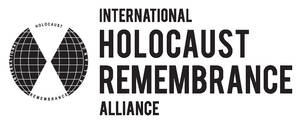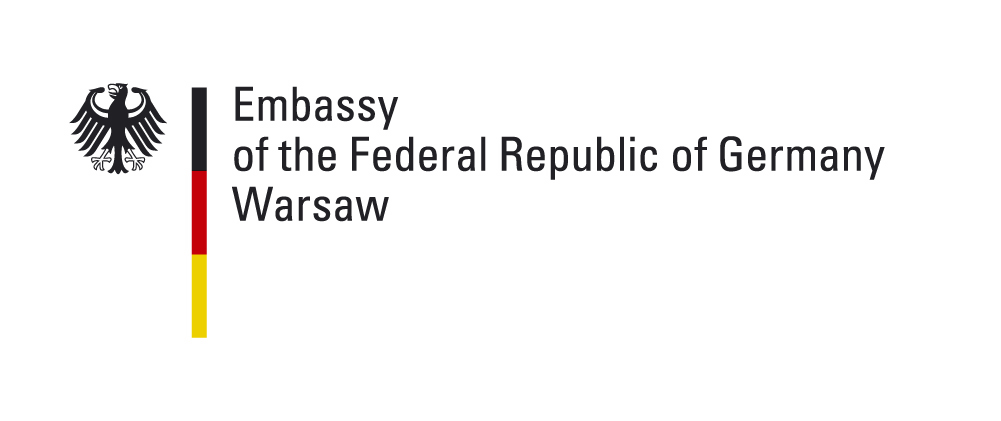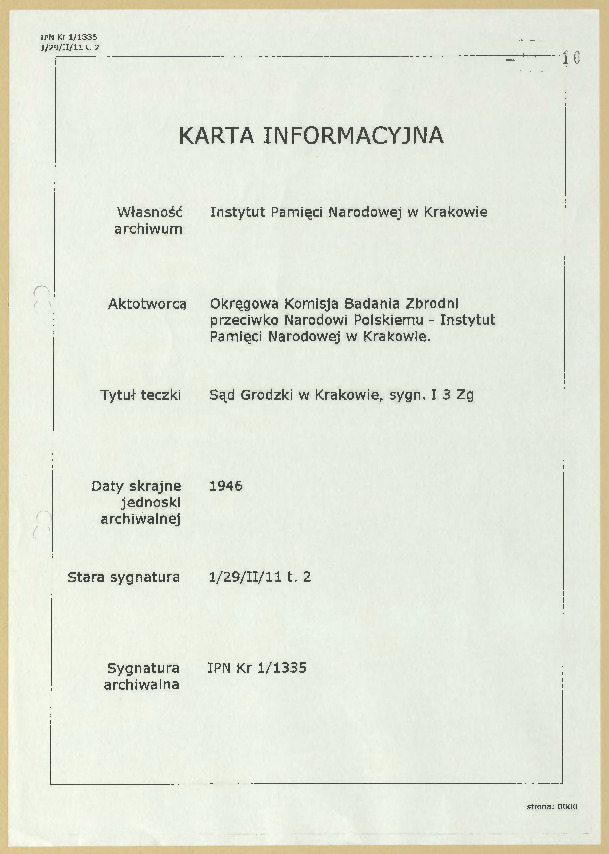Ponice
Borough of Rabka-Zdrój,Nowotarski District, Małopolskie VoivodshipType of place
A private propertyInformation about the crime
In 1942, Herman Schippler murdered a Jewish family of five living in Ponice. The bodies were buried at the place of the murder – on the “Bacówka” river, known as the shepherd’s stream. The alleged location of the burial site was possible thanks to the testimonies of witnesses and a wooden cross put in the place where the bodies were buried.
Jan P., 89-year-old resident of Ponice remembers this crime:
“It was a family, they lived with my neighbor, P. Sroka (Ponice 137). We played with them. On that day, a German soldier was walking past the house in which they were hiding. This Jew was chopping wood near the house. When he saw the soldier, he panicked and ran upstairs. The Germans led them to the stream, they cried so terribly, and then I heard shots.”
Franciszek G., also an inhabitant of Ponice, mentions the brutal behavior of Herman Schippler: “I saw with my own eyes Herman Schippler, after capturing four adults and one child of Jewish nationality in Ponice in 1942, shot them by the river in Ponice. I saw Schippler grab a four-year-old child by the legs and bang his head against a tree, killing him on the spot.” (Ds 161/65 / S p.)
Other witnesses confirm the course of events. Jan Z., also an inhabitant of Ponice, recalls the murdered family – he best remembers the boy, Waldek, with whom he used to sleighed. Jan Z. also confirmed that the remains of the murdered family still rest by the shepherd’s stream.
Franciszek P. also remembers the crime very well. This is how he recalls it: “They led them to their death [a Jewish family] near the mill, to that shepherd’s stream. We watched it from the backyard of our house, the Jews led by them groaned and sobbed. There were two children, five people in total. One Jew escaped. Later we heard the shots. I still hear those shots today. I still remember the grave.”
The father of another witness was digging a grave for a Jewish family, hence the witness knows the history of the crime: “The Germans caught the whole family, i.e. a woman, a child, a father, and two elders […]. He [the father] knew that he was going to die, so he ran off. They shot, but missed. He came here after two years.” The witness’s father also told him how the family was led to the so-called shepherd’s stream.
The murder of a Jewish family in Ponice is also described in the book Mroczne sekrety willi “Tereska”: 1939-1945: “A Jewish couple with a child took refuge in Ponice during the last war. They were hiding in one of the houses. One day a group of German soldiers was passing through the village, when a man chopping wood saw them. He panicked and started to run away. This strange behavior didn’t go unnoticed by the soldiers. They decided to enter the house where the man was hiding. During the search, they found a hideout in the attic where the Jews were hiding. They ordered them to leave the house and led them to the river. They were ordered to dig a hole. When the grave was prepared, the parents were shot, and then the child.”
IDENTIFICATION OF THE GRAVE BASED ON NON INVASIVE RESEARCH
Non-invasive research in Ponice is planned for 2022.
Sources
Contact and cooperation
We are still looking for information on the identity of the victims and the location of Jewish graves in Ponice. If you know something more, write to us at the following address: fundacjazapomniane@gmail.com.
Bibliography
Ds 161/65 / S Report of interrogation of a witness, The Chief Commission for the Examination of German Crimes in Poland, witness Franciszek G., February 14, 1968.
Accounts of witnesses – the inhabitants of Ponice: Jan [b. 1935], Jan [b. 1932], Franciszek [b. 1937], witness [53 years old]. Accounts collected by Narcyz Listkowski in 2015.
Michał Rapta, Wojciech Tupta, Grzegorz Moskal Mroczne sekrety willi “Tereska”: 1939-1945, Grafikon Publishing House, Wadowice 2009.
We have collected the materials about this village thanks to the funding provided by the International Holocaust Remembrance Alliance as part of the project “The rural Holocaust. Collecting and safeguarding the never recorded testimonies 100 forgotten Jewish graves 2021-2022” and also thanks to the support of the Embassy of the Federal Republic of Germany in Warsaw.


 Sąd Grodzki w Krakowie, sygn. I 3 Zg - Ponice
Sąd Grodzki w Krakowie, sygn. I 3 Zg - Ponice